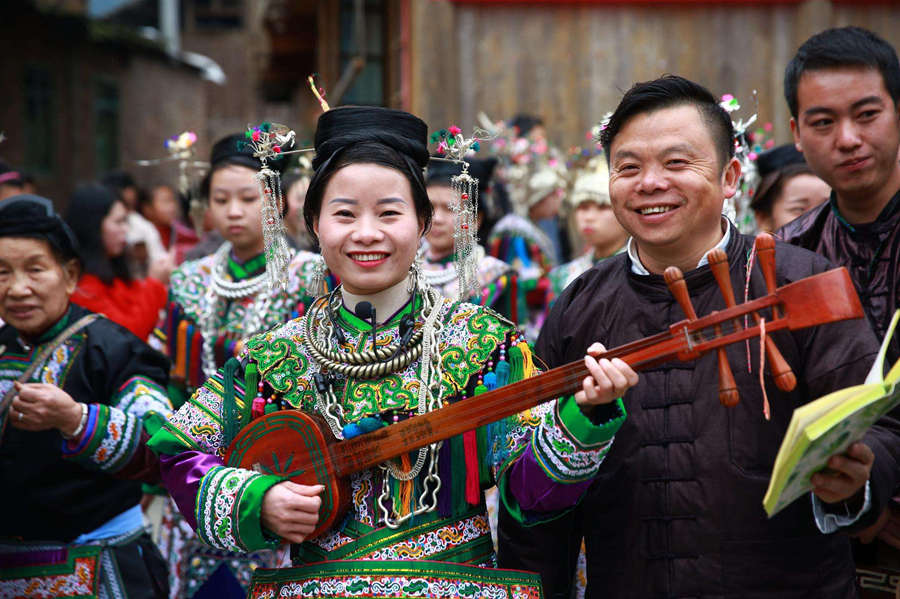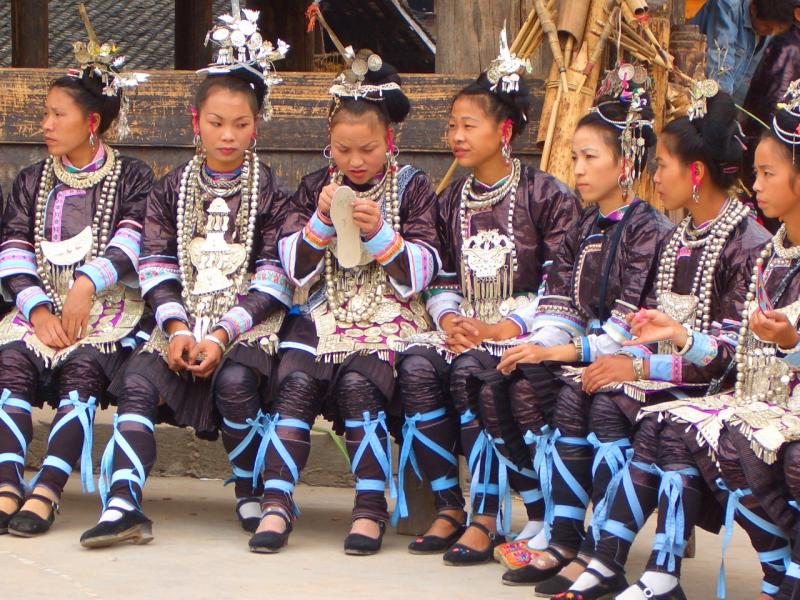The Dong's New Year Festival
The Dongs have a total of 45 festivals in a year, and they celebrate almost once a week. Before the Chinese lunar calendar was introduced to the Dong people, Dong people had already begun the celebration of their own New Year. Traditionally, they believed that the autumn harvest after the end of the farming affairs was the end of the year and heralded the beginning of the new year. This is also the New Year in the Dong calendar, which is about the end of October or the beginning of November in our current lunar calendar of China. This is not the same as China Lunar New Year on the first day of the first lunar month.
After having used the lunar calendar for a long time, the Dong people gradually accepted widely recognized calendar in China and gave up their own original calendar in most areas, but some areas still celebrate the Dong people’s New Year according to ancient customs. It is customary for the Dong people to celebrate the New Year twice or more times. They call the Dong people's New Year as “Lesser New Year” and the Lunar Chinese New Year as “Greater New Year”.

When is Dong New Year 2021/2022?
The 72 Dong Villages in Rongjiang area of Guizhou province celebrate the Dong Year at the beginning of November based on the Chinese lunar calendar. Each village has their own Dong New Year’s time, which makes them to take turns for the celebrations. In this way, it is convenient for the villages to treat each other. At the end of October, they will clean every corner of the house, and prepare the New Year's items like the slaughter of pigs and cows. Wait until November 1st to 5th day for large-scale singing party, bamboo pipes dancing, bullfighting and other activities. After the celebration in one village, the villagers will have at least one or more times of New Year celebration. The so-called "accompanying new year" is to accompany the nearby Dong village to spend the Dong New Year and to accompany the nearby Han people to celebrate the Lunar New Year.
Dong New Year celebrated in Guizhou, Guangxi and other areas
During the New Year period, a long table banquet (or named Hundred Families Banquet) is set up on the street to entertain villagers and guests. In the southeast of Guizhou, there is a special local flavor of native Dong and Miao people: Niu Bie, also known as "Hundred-grasses Soup". This is the top delicacy of the ethnic people. A variety of Chinese herbal medicines are fed to the cows half an hour before they are butchered, and the main ingredients of the dish is from the cow’s stomach (goat as well). The Chinese herbal medicines are half digested. After being washed clean, the material will be put into the hotpot, cooked together with beef and other ingredients. Niu Bie is known as one of the strangest flavors in Guizhou. Some people may not like its smell, but for locals in the past it was only available in the big banquet, and a great treat to the honorable guests.

The Dong villagers are very hospitable and entertaining. They often sing a toast song around the guest table, hoping that the guests from afar would have a good drink. There is a "running water from the high mountain" style toast, in which it is usually four or five Dong women in a team, each carries a bowl, and the last one has a pot of sticky rice wine. The wine is poured into the mouth of the guests continuously via the bowls from top to bottom until you can finish the whole pot! During this period, the ladies also sang a very nice drinking song together, and the first lady next to the guest will twist the guest’s ear softly at the same time. Isn’t it a fun experience in a Dong village?
If you intend to experience the celebrations of Dong’s New Year, please feel free to let us know. Our travel specialist will craft a customized trip to the Dong minority areas in China for you. Or You may take Guizhou Lunar New Year Festival tour to experience the grand festival atmosphere.
Related Reading


